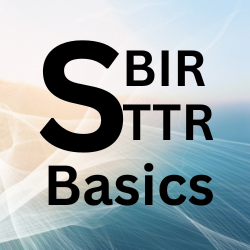The Small Business Innovation Research (SBIR) and Small Business Technology Transfer (STTR) programs offer funding to small businesses working on cutting-edge research and development (R&D). These federal programs help entrepreneurs bring new technologies to life, particularly in defense, health, and environmental fields. However, securing these funds requires compliance with accounting and business system regulations. Adhering to these requirements ensures eligibility for continued funding and helps avoid penalties.
Understanding SBIR and STTR Compliance Frameworks
The SBIR and STTR programs promote R&D while safeguarding the integrity of funding. These grants are managed by various federal agencies, each with specific guidelines. Both programs aim to help small businesses commercialize innovative technologies while maintaining compliance with strict standards. Recipients must adhere to key areas such as financial systems, accounting standards, record-keeping, and reporting. These requirements ensure taxpayer dollars’ responsible, efficient, and transparent use.
Key Compliance Requirements for Accounting Systems
Establishing Adequate Accounting Systems
Recipients must have a comprehensive accounting system that accurately tracks and reports financial data. The system must segregate funds from different grants and show clear accountability.
A well-organized accounting system should include:
-
- A chart of accounts for each type of expenditure.
- The ability to track costs by project or funding source.
- Internal controls to prevent fraud or mismanagement.
- Compliance with GAAP (accrual accounting) and other accounting standards.
Federal Acquisition Regulation (FAR) Compliance
Federal Acquisition Regulation (FAR) compliance requires businesses to implement accounting and business systems that meet specific standards for managing federal funds. These systems must ensure accurate cost allocation, proper documentation of expenses, and transparency in financial reporting. Companies must adhere to guidelines for allowable, allocable, and reasonable costs, ensuring that funds are used appropriately and in compliance with federal requirements. Regular audits and detailed record-keeping are essential to demonstrate compliance and avoid penalties.
This includes ensuring that costs are allowable, allocable, and reasonable according to the Federal Acquisition Regulation (FAR).
Key elements related to costs with the systems include:
-
- Allowable Costs: Expenses directly supporting the project approved under the grant or contract.
- Allocability: Costs must be assigned to the correct funding source, reflecting the project’s benefit.
- Reasonableness: Costs should align with what is appropriate for the services or products provided.
Audit and Record-Keeping Requirements
SBIR and STTR recipients must maintain accurate, up-to-date records. All records made available for audits by the granting agency, independent auditors, the Office of the Inspector General (OIG), or other government auditors.
Key requirements:
-
- Retention of Records: Maintain financial records for at least three years after final closeout.
- Auditability: Records must be accessible and show a clear audit trail.
Compliance with Time and Effort Reporting
Time and effort reporting ensures that employees working on funded projects allocate their time correctly. Employees should maintain accurate records of the time they spend on each project. The company must verify that time charges align with the effort expended.
Subcontractor Monitoring
Subcontracting is essential for many small businesses. Recipients must monitor subcontractors closely to ensure compliance with program terms.
Key management areas:
-
- Allowable Costs for Subcontractors: Subcontracted expenses must be allowable under the grant.
- Performance Reports: Subcontractors must report progress and expenditures, which recipients consolidate and submit.
Financial Reporting and Payment Requests
Recipients must submit periodic financial reports that show how they utilize the funds. These reports must align with the project’s progress and approved budget. Payment requests must demonstrate eligibility for costs and completed work.
Best Practices for Maintaining Accounting System Compliance
To stay compliant with SBIR and STTR requirements, recipients should follow these best practices:
-
- Develop an internal compliance checklist.
- Invest in robust accounting software for government contract management.
- Work with a government compliance expert or CPA.
- Regularly audit internal processes to catch issues early.
Conclusion
Compliance with SBIR and STTR accounting and business system requirements is critical for recipients of these grants. A strong accounting system, adherence to cost accounting standards, and proper record-keeping help businesses successfully manage their awards. Following best practices, seeking professional guidance, and developing a culture of compliance reduce the risk of costly mistakes. These federal funding opportunities support innovation and provide a solid foundation for small business technology development growth.
References
- U.S. Small Business Administration. (2020). Small Business Innovation Research (SBIR) Program. Retrieved from https://www.sba.gov/funding-programs
- U.S. Small Business Administration. (2020). Small Business Technology Transfer (STTR) Program. Retrieved from https://www.sba.gov/funding-programs
- U.S. Department of Energy. (2019). SBIR and STTR: Financial Reporting Requirements. Retrieved from https://www.energy.gov
- National Science Foundation. (2020). NSF SBIR/STTR Proposal & Award Policies & Procedures Guide. Retrieved from https://www.nsf.gov
- U.S. Government Accountability Office. (2018). SBIR and STTR Programs: Federal Agencies Face Challenges in Ensuring Proper Use of Funds. Retrieved from https://www.gao.gov
- U.S. Department of Defense. (2021). SBIR/STTR Funding Opportunities and Compliance Requirements. Retrieved from https://www.defense.gov
- Internal Revenue Service. (2020). IRS Guidance on Tax Implications for SBIR and STTR Grants. Retrieved from https://www.irs.gov

